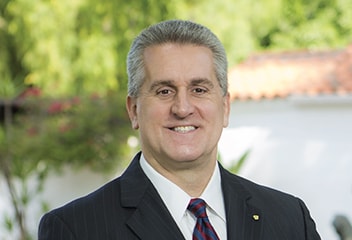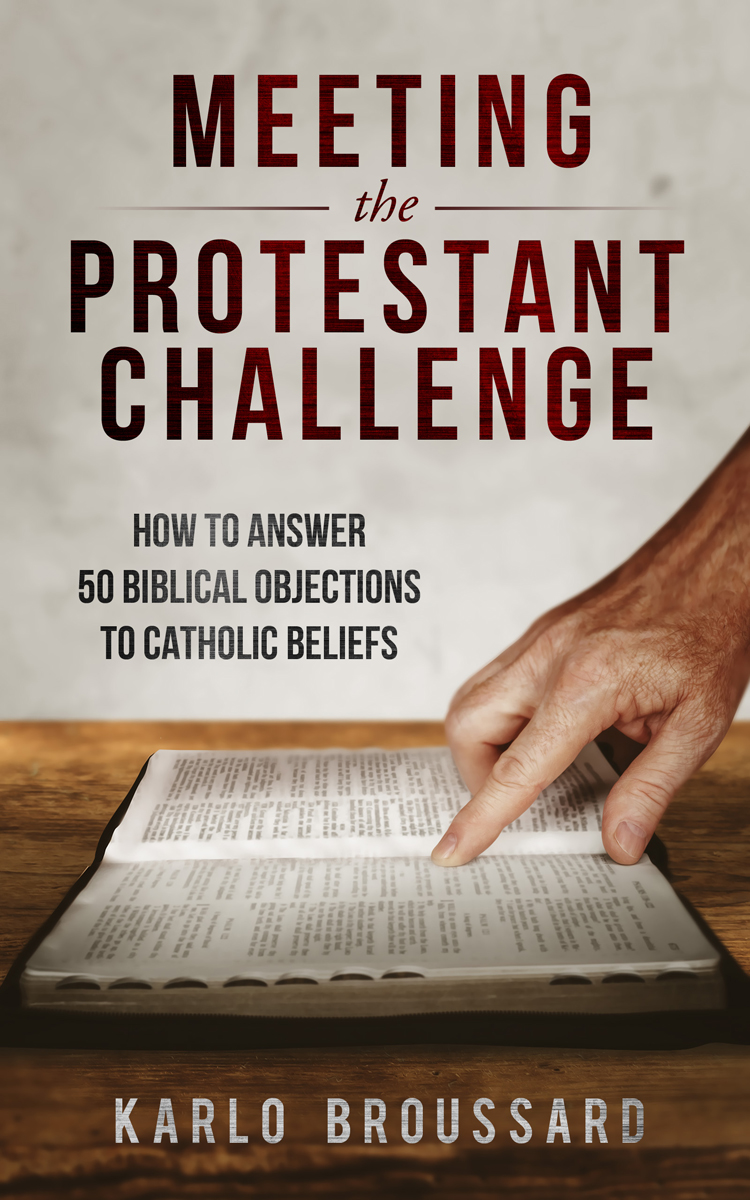
– detail from the “Last Judgment”, by Giotti, Cappella Scrovegni, 1306, Fresco, 1000 x 840 cm, Arena Chapel, Padua, Italy, please click on the image for greater detail.
The chapel is entered from the west, the side on which the sun goes down. In accordance with an old tradition, the entrance wall of the chapel is filled by the depiction of the Last Judgment. This scene is as complex and crowded as the frescoes on the side walls are concentrated and reduced to essentials. This large painting occupies the entire west wall across several registers. The three-light windows of the façade also had to be incorporated into the composition.
This extensive depiction of the Last Judgment is dominated by the large Christ in Majesty at its centre. The twelve apostles sit to His left and to His right. Here the two levels divide: the heavenly host appears above, people plunge into the maw of hell below, or are led by angels towards heaven.
The way this large fresco is divided into registers is traditional. But if we look at Giotto’s invention in detail, then his novel attempts at visualizing different spheres, as well as abstract beliefs, become particularly apparent. In the center of the representation, Christ is enthroned as supreme Judge in a rainbow-colored mandorla. The deep, radiant gold background, the style of painting, and the delicate substance give the impression that the heavens have opened in order to reveal the powerful, extremely solidly modeled figure of Christ. Different levels are likewise alluded to when the choirs of angels disappear behind the real window, or when the celestial watch in the upper area of the picture rolls back the firmament, behind which the golden-red doors of the heavenly Jerusalem shine forth. The black and red maw of hell, which seems to anticipate Dante’s “Inferno”, is different again in its impact.

-by Tim Staples, Tim was raised a Southern Baptist. Although he fell away from the faith of his childhood, Tim came back to faith in Christ during his late teen years through the witness of Christian televangelists. Soon after, Tim joined the Marine Corps.
“Romans 5:1 is a favorite verse for those who hold to the doctrine commonly known as “once saved, always saved”: “Therefore, since we are justified by faith, we have peace with God through our Lord Jesus Christ.” This text is believed to indicate that the justification of the believer in Christ at the point of faith is a one-time completed action. For the once saved–always saved believer, all sins are forgiven immediately—past, present, and future. The believer then has, or at least, can have, absolute assurance of his justification regardless of what may happen in the future. Nothing can separate the true believer from Christ—not even the gravest of sins. Similarly, with regard to salvation, Ephesians 2:8-9 says: “For by grace you have been saved through faith; and this is not your own doing, it is the gift of God—not because of works, lest any man should boast.”
For the Protestant, these texts seem plain. Ephesians 2 says the salvation of the believer is past—perfect tense, passive voice in Greek, to be more precise—which means a past completed action with present, ongoing results. In other words, it’s over. And if we examine again Romans 5:1, the verb justify is in a simple past tense (Greek Aorist tense). And this use is in a context where St. Paul had just told these Romans: “For if Abraham was justified by works, he has something to boast about, but not before God. For what does the scripture say? ‘Abraham believed God, and it was reckoned to him as righteousness’” (Rom. 4:3).
Righteousness is a synonym for justice or justification. How does it get any plainer than that? Abraham was justified once and for all when he believed. Not only is this proof of sola fide, says the Calvinist, but it is proof that justification is a completed transaction at the point the believer comes to Christ. The paradigm of the life of Abraham is believed to hold indisputable proof of the Reformed position.
Continue in the Grace of God
The Catholic Church actually agrees with this interpretation, at least on a couple of points. First, as baptized Catholics, we can agree that we have been justified and we have been saved. Thus, in one sense, our justification and salvation is in the past as a completed action. The initial grace of justification and salvation we receive in baptism is a done deal. And Catholics do not believe we were partially justified or partially saved at baptism. Catholics believe, as Peter says in 1 Peter 3:21, “Baptism… now saves you…” Ananias said to Saul of Tarsus, “Rise and be baptized, and wash away your sins, calling on his name” (Acts 22:16). That means the new Christian has been “washed… sanctified… [and] justified” as 1 Corinthians 6:11 remarks. That much is a done deal; thus, it is entirely proper to say we “have been justified” and we “have been saved.” However, this is not the end of the story. Scripture reveals that through this justification and salvation the new Christian experiences in baptism, he enters into a process of justification and salvation requiring his free cooperation with God’s grace. If we read the very next verses of our above-cited texts, we find the writer telling us there is more to the story.
Romans 5:1-2 states, “Therefore, since we are justified by faith, we have peace with God through our Lord Jesus Christ. Through him we have obtained access to this grace in which we stand, and we rejoice in our hope of sharing the glory of God.”
This text indicates that after having received the grace of justification, we now have access to God’s grace by which we stand in Christ, and we can then rejoice in the hope of sharing God’s glory. That word hope indicates that what we are hoping for we do not yet possess.
“For we are his workmanship, created in Christ Jesus for good works, which God prepared beforehand, that we should walk in them” (Eph. 2:10). Without a doubt, we must continue to work in Christ as Christians; it is also true that it is only by the grace of God we can continue to do so. But even more importantly, Scripture tells us this grace can be resisted. Second Corinthians 6:1 tells us that “Working together with him, then, we entreat you not to accept the grace of God in vain.”
St. Paul urged believers in Antioch—and all of us by implication—”to continue in the grace of God.” Indeed, Paul warns Christians that they can “fall from grace” in Galatians 5:4. This leads us to our next and most crucial point.
Future and Contingent
The major part of the puzzle that our Protestant friends are missing is that there are many biblical texts revealing justification to have a future and contingent sense as well as those that show a past sense. In other words, justification and salvation also have a sense in which they are not complete in the lives of believers. Perhaps this is most plainly seen in Galatians 5:1-5:
For freedom Christ has set us free; stand fast therefore, and do not submit again to a yoke of slavery. Now I, Paul, say to you that if you receive circumcision, Christ will be of no advantage to you. I testify again to every man who receives circumcision that he is bound to keep the whole law. You are severed from Christ, you who would be justified by the law; you have fallen away from grace. For through the Spirit, by faith, we wait for the hope of righteousness.
The Greek word used in verse 5 and here translated as righteousness is dikaiosunes, which can be translated either as “righteousness” or as “justification.” In fact, Romans 4:3, which we quoted above, uses a verb form of this same word for justification. Now the fact that St. Paul tells us we “wait for the hope of [justification]” is very significant. As we said before, what is hoped for not yet possessed. It is still in the future. Romans 8:24 tells us “For in this hope we were saved. Now hope that is seen is not hope. For who hopes for what he sees? But if we hope for what we do not see, we wait for it with patience.” The context of Galatians is clear: Paul warns Galatian Christians that if they attempt to be justified—even though they are already justified in one sense, through baptism, according to Galatians 3:27—by the works of the law, they will fall from the grace of Christ. Why? Because they would be attempting to be justified apart from Christ and the gospel of Christ. That they could not do! For “those who are in the flesh cannot please God” (Rom. 8:8, cf. Gal. 5:19-21). “The flesh” is a reference to the human person apart from grace.
This example of justification being obtained in the future is not an isolated case. Numerous biblical texts indicate both justification and salvation to be future and contingent realities:
- Romans 2:13-16: For it is not the hearers of the law who are righteous before God, but the doers of the law who will be justified … on that day when, according to my gospel, God judges the secrets of men by Jesus Christ.
- Romans 6:16: Do you not know that if you yield yourselves to anyone as obedient slaves, you are slaves of the one whom you obey, either of sin, which leads to death, or of obedience which leads to righteousness? (Greek dikaiosunen, “justification”)
- Matthew 10:22: And you will be hated of all men for my name’s sake. But he who endures to the end will be saved.
- Romans 13:11: For salvation is nearer to us now than when we first believed.
- 1 Corinthians 5:5: You are to deliver this man to Satan for the destruction of the flesh that his spirit may be saved in the day of the Lord Jesus.
Are Future Sins Forgiven?
The Calvinist interpretation of Romans 5:1 not only takes the verse out of context, but it leads to still other unbiblical teaching. As we mentioned above, at least from a Calvinist perspective, this understanding of Romans 5:1 leads to the untenable position that all future sins are forgiven at the point of saving faith. Where is that in the Bible? It’s not. First John 1:8-9 could not make any clearer the fact that our future sins will only be forgiven when we confess them: “If we say we have no sin, we deceive ourselves, and the truth is not in us. If we confess our sins, he is faithful and just, and will forgive our sins and cleanse us from all unrighteousness.”
I should note here that many Calvinists—and many of those who may not be full-fledged Calvinists, but hold to the “once saved always saved” part of classic Calvinist doctrine—respond to this text by claiming that the forgiveness of sins John is talking about has nothing to do with one’s justification before God. This text only considers whether or not one is in fellowship with God. And this “fellowship with God” is interpreted to mean only whether or not one will receive God’s blessings in this life.
This position presents a problem. The context of the passage does not allow for this interpretation. In fact, if you look at verses 5-7, John says:
God is light and in him is no darkness at all. If we say we have fellowship with him, while we walk in darkness, we lie and do not live according to the truth; but if we walk in the light, as he is in the light, we have fellowship with one another, and the blood of Jesus his Son cleanses us from all sin. (1 John 1:5-7)
This text makes clear that the “fellowship” spoken of is essential for us to 1) walk in the light as God is in the light, and 2) have our sins forgiven. If we are not in “fellowship,” according to verse 6, then we are in darkness. And if we are in darkness, we are not in God, “who is light and in him is no darkness” (5). Nothing in this text even hints at the possibility that you can be out of “fellowship” with God, but still go to heaven. That is, of course, unless you have that fellowship restored by the confession of your sins. This is precisely what verses 8 and 9 are all about.
The Example of Abraham
We can agree with our Calvinist friends that Romans 4:3 demonstrates Abraham to have been justified through the gift of faith he received from God. The Catholic Church acknowledges what the text clearly says: “Abraham believed God and it was reckoned to him as righteousness,” referencing Genesis 15:6.
There is more to this text, however, than many of our Protestant friends know. While the Catholic Church agrees that Abraham was justified by faith in Genesis 15:6 as Paul said, we also note that Abraham was justified at other times in his life as well, indicating justification to have another.aspect to it. Again, there is a sense in which justification is a past action in the life of believers, but there is another sense in which justification is revealed to be a process as well.
Abraham was depicted as having saving faith in God long before Genesis 15:6. Abraham had already responded to God’s call in Genesis 12 with what is revealed to be saving faith, years before his encounter with the Lord in Genesis 15. In addition, Abraham is revealed to have been justified again in Genesis 22, years after Genesis 15, when he offered his son Isaac in sacrifice in obedience to the Lord.
- Genesis 12:14: Now the Lord said to Abraham, “Go from your country and your kindred and your father’s house to the land that I will show you…” So Abram went, as the Lord had told him. Compare Hebrews 11:6,8: And without faith it is impossible to please God… By faith Abraham obeyed when he was called… and he went out, not knowing where he was to go.
- Genesis 15:4,6: “This man [a slave] shall not be your heir; your own son shall be your heir.” And [Abram] believed the Lord: and he reckoned it to him as righteousness. Compare Romans 4:3: For what does the scripture say? “Abraham believed God, and it was reckoned to him as righteousness.”
- Genesis 22:15-17: And the angel of the Lord called to Abraham a second time from heaven, and said, “By myself I have sworn, says the Lord, because you have done this, and have not withheld your son, your only son, I will indeed bless you, and I will multiply your descendents as the stars of heaven… because you have obeyed my voice.” Compare James 2:21-22,24: Was not Abraham our father justified by works, when he offered his son Isaac upon the altar?… faith was completed by works… You see that a man is justified by works and not by faith alone.
The Bible tells us Abraham had faith way back in Genesis 12. And according to Hebrews 11:6-8, this was not a natural faith analogous to the faith the demons have (see James 2:19), but rather a supernatural and saving faith given as a gift from God. If Abraham was not justified until Genesis 15:6, how could he already have saving faith in Genesis 12? In addition, if Abraham was justified once and for all in Genesis 15:6, why did he need to be justified again in Genesis 22 according to James 2:21? The reason is simple: According to these texts, justification is revealed in Scripture to be a process rather than a mere one-time event.”
Love,
Matthew














